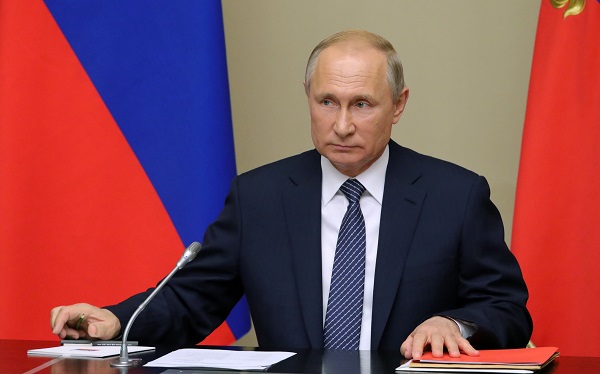Moscow, Russian President Vladimir Putin reiterated his support for his Venezuelan counterpart Nicolás Maduro over the opposition leader and self-proclaimed interim president, Juan Guaidó.
Putin also said that dialogue with opposition forces in the Latin American country must continue.
“Russia consistently supports all the legitimate power organs of Venezuela, including the presidency and its parliament,” Putin said in his meeting with Maduro in the Kremlin on Wednesday, Efe news reported.
Maduro has already received Putin’s support in numerous telephone conversations over the last eight months, but Wednesday was the first time the pair have seen each other since Guaidó declared himself the interim president of Venezuela back in January.
Visits to Russia by members of Maduro’s government have been constant in recent months, with vice president Delcy Rodríguez, minister of industries and national production Tareck El Aissami, minister of foreign affairs Jorge Arreaza and petroleum minister Manuel Quevedo all making stops in Moscow.
Russia is the Maduro regime’s main ally, along with China, Bolivia, Cuba, Nicaragua and Turkey, while over 50 countries – led by the United States – have expressed their support for Guaidó and consider that the last presidential elections did not have all the democratic guarantees.
Moscow has always advocated for dialogue in Venezuela and a peaceful solution to the conflict.
It has also rejected the possibility of foreign interference and any military intervention in the Latin American country’s internal affairs.
Putin reiterated Wednesday that Russia supported the dialogue between Maduro’s government and the opposition forces, and urged both sides to persist.
The Russian president said “any renunciation of the dialogue is considered irrational, harmful to the country and would constitute a threat to the welfare of the population.”
After the breakdown of talks in Barbados, the ruling party and minority opposition parties announced a “national dialogue table” which, besides the return of Chavism to Parliament, contemplates the release of “political prisoners” and an exchange of oil for food, medicine and services.
Maduro said the two countries have “shown that in the midst of difficulties we can move forward together.”
For the Venezuelan president, Wednesday’s meeting was “very important” and it allowed the countries “to take stock of the difficulties, the realities, the advances and to project the future years” of bilateral cooperation.”
Maduro posted on Twitter that the two leaders reviewed “the entire bilateral cooperation map.
“We’re drawing new routes for deepening the system of cooperation and exchange between our people.”
The Venezuelan president has not only sought – and received – Putin’s political support, but also his economic backing in the face of US sanctions against top government leaders and the state oil company PDVSA, the country’s main source of income.
Maduro said that after the last high-level intergovernmental commission between Russia and Venezuela “many issues have been successfully addressed.”
In April, the two countries signed 11 agreements.
Russia and Venezuela have in the last 18 years signed about 260 cooperation agreements in mining, oil, economic, energy, food and military matters.
According to the documents that were prepared for Wednesday’s meeting, Venezuela expects Russian investments of about $1 billion in mining projects.
According to Putin, Russia has invested about $4 billion in Venezuela’s economy.
The Russian leader also said trade between the two nations has increased by 10 percent in recent months, something he believed was significant “given the very difficult situation in Venezuela.”
Putin said supplies of Russian agricultural products to Venezuela could be seen as humanitarian cooperation in the midst of the severe economic crisis gripping the country.
He also announced he would be sending about 1.5 million doses of flu vaccines to Venezuela and planned to provide up to 5 million doses on a regular basis.
Putin also reaffirmed his country’s commitment to technical-military cooperation with Venezuela – the largest buyer of Russian weapons and military equipment in Latin America – particularly when it comes to the supply of spare parts and maintenance of the materials acquired by Caracas.
Contracts between Russia and Venezuela in this particular sector are estimated to be worth around $11 billion, according to the Russian agency Interfax.










